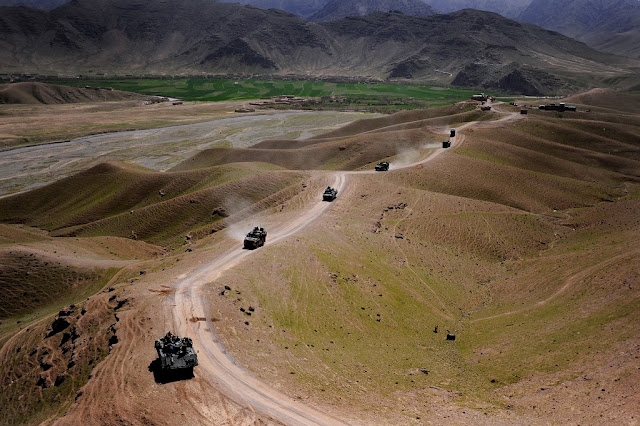-
Interview With Wilson Center Scholar Jill Shankleman: Could Transparency Initiatives Mitigate the Resource Curse in Afghanistan?
June 25, 2010 By Schuyler Null
In the wake of The New York Times article detailing a potential mineral bonanza in Afghanistan, Senators Ben Cardin and Dick Lugar earlier this week published an op-ed in support of a bill that would create “an international standard for transparency in law” by requiring oil, gas, and mining industries to report amounts paid for drilling/mining rights in their SEC filings. A similar program, albeit a voluntary one, already exists – the Extractive Industries Transparency Initiative (EITI). The senators, however, raised questions about the ability of EITI to ensure transparency and accountability of payments for future mining rights to Afghanistan’s government. Joining EITI was a “good first step,” they say, “but too many countries and companies remain outside this system.”
Afghanistan is one of the newest members of EITI, which now covers more than 30 resource-rich countries. The initiative was launched in 2002 by a small coalition of NGOs and leading extractive industry companies to help companies make sure payments made to local governments were not being used nefariously.
Jill Shankleman, a scholar at the Woodrow Wilson Center and former senior environmental specialist at the World Bank, is an expert on EITI and oil, gas, and mineral extraction in developing nations. We were able to track her down in Khartoum to answer a few questions about the initiative and how it might affect Afghanistan and other conflict-ridden but resource-rich nations.
EITI is a young initiative and only two countries have yet reached validation status. Afghanistan became an EITI candidate in February and has until February of 2012 to be validated. What have been the primary stumbling blocks for the many candidate countries yet to be fully validated?
EITI is quite specific about what countries must do to be validated. This includes having an effective tri-sector steering group (representatives from government, oil and mineral companies, and civil society) with a budget and access to information and also getting data validated by one of a small number of registered validators.
Some countries have underestimated these requirements. The make-or-break for EITI will be whether a significant number of countries get validated over the next year.
EITI, by its voluntary nature, favors a country-led approach. Would a bill like Senator Cardin and Lugar’s which would only affect domestic companies have any real impact on Afghanistan?
The Lugar bill would complement EITI by ensuring disclosure of revenues paid to the government even in non-EITI countries. So it would accelerate transparency. However, it does not substitute for EITI because it lacks the civil society component, and would not cover payments made by companies that are not SEC-listed. It is an important step but does not reduce the need for countries to enter into EITI.
Do you think EITI has been effective thus far?
EITI was always going to be a “slow burn” initiative. It will only have an impact over time, as information is disclosed, and people become aware of how to interpret the data and are able to use information to put pressure on government to use income from non-renewable resources in an effective way that stimulates development. I think there is a head of steam building up behind the initiative, with some very important recent developments such as Iraq joining, and the largest Chinese oil company, CNPC, joining the Iraq steering committee as a company member.
I see signs that EITI is becoming established as the international standard for revenue transparency. Also there are indications that EITI provides some opportunities to strengthen civil society’s voice (even, as in Equatorial Guinea, where the country has been suspended from EITI for the moment).
Can EITI work in conflict-ridden countries like Afghanistan and the Democratic Republic of Congo?
It is the only game in town, and worth supporting in conflict-ridden countries. Are there other extractive transparency initiatives that would be more effective in these countries? Not really. The Natural Resources Charter developed by Paul Collier et al. is a wider process that deals with how revenues are raised and used, as well as how they are disclosed. This offers a broader toolkit and is wholly consistent with EITI, but lacks any kind of compliance mechanism.
Read more on Afghanistan’s mineral wealth and the misuse of geology in policy on New Security Beat.
Sources: EITI, Politico.
Photo Credit: “U.S./French convoy across southern Afghanistan” courtesy of flickr user Kenny Holston 21.
 A Publication of the Stimson Center.
A Publication of the Stimson Center.




